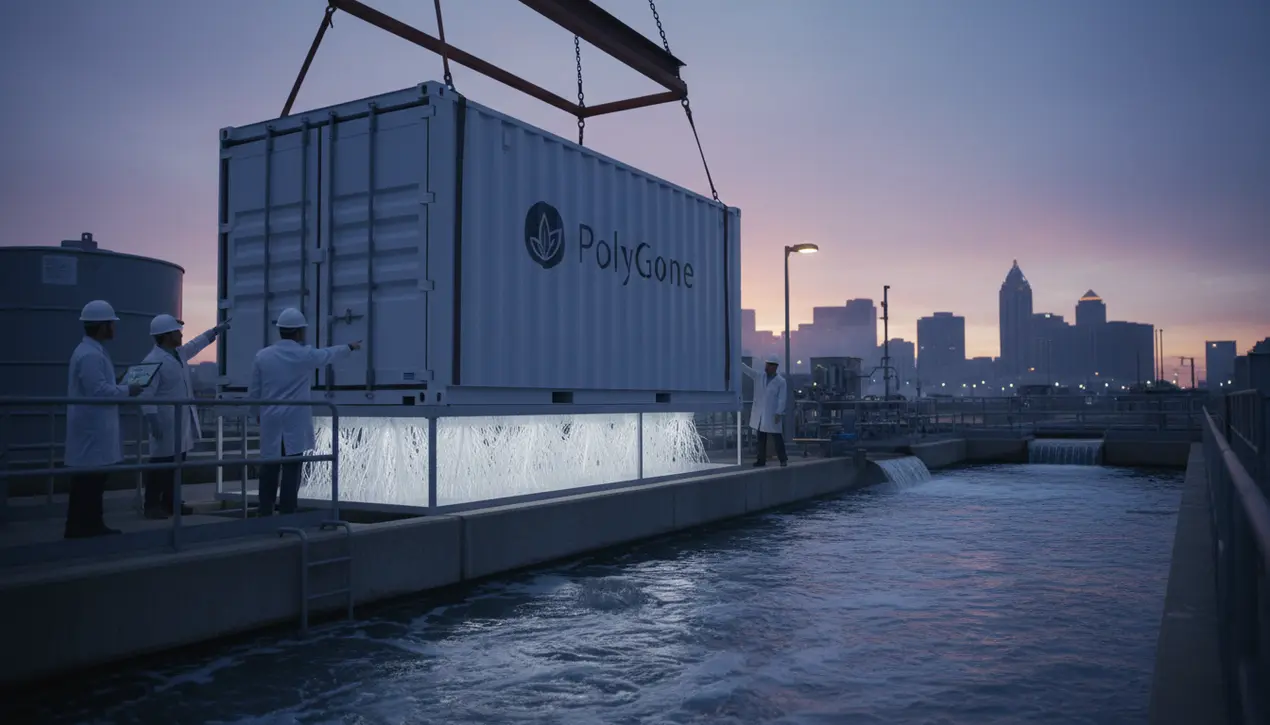
Scienceclimate scienceEnvironmental Policy
Startup's plant-inspired tech captures microplastics from water.
RA
Rachel Adams
2 hours ago7 min read
In the unending battle against an invisible pollutant, a quiet revolution is unfolding at a water treatment facility in Atlantic City, New Jersey. Here, where plastic-saturated wastewater has historically flowed unimpeded into the Atlantic Ocean, a startup named PolyGone has, over the past year, intercepted a staggering 520 million particles of microplastic.These tiny fragments, shed from synthetic clothing, car tires, and packaging, typically slip through conventional filters with devastating ecological consequences, entering marine food webs and accumulating in organisms from zooplankton to humans. The inspiration for this technological counteroffensive was found not in an engineering textbook, but in nature's own design: the fibrous roots of aquatic plants.Researchers from Princeton, who later founded PolyGone, observed how these roots, coated in a hydrophobic gel, naturally attract and trap pollution. By meticulously imitating this geometry and surface chemistry, they engineered a filter with an uneven, cavity-rich surface that acts as a snare for even the most minuscule plastic particles, invisible to the naked eye.This biomimicry represents a profound shift in environmental technology, moving from brute-force filtration to elegant, nature-informed solutions. The scale of the problem is monumental; most U.S. wastewater plants lack advanced treatment, and those that do often only capture larger microplastics between 1 and 5 millimeters, allowing the most pervasive and dangerous smaller fragments to escape.Even advanced fine-mesh filters merely transfer the problem, sending captured plastic to landfills. In stark contrast, PolyGone's system boasts a 98% capture rate in lab tests, but its true innovation lies in its circularity.The filters are cleaned and reused, while the concentrated plastic is diverted from waste streams and sent to partners who transform it into chemicals or fuel. This closed-loop approach tackles not only pollution at the source but also the lifecycle of the material itself.The company's recent $4 million seed funding has accelerated the development of a self-cleaning, shipping-container-sized unit that can be deployed at a wastewater plant in a single day, offering a plug-and-play solution that avoids costly, energy-intensive retrofits. Its passive design dramatically reduces energy consumption compared to high-pressure pump systems, and its open architecture resists clogging.While a Roomba-like version for lakes has been tested, the immediate commercial traction is in the industrial sector, where brands under pressure to meet sustainability goals are adopting the technology. Clothing manufacturers, in particular, are piloting systems to intercept microplastic fibers at the source.The regulatory landscape is also shifting, with California leading the charge on microplastic testing and potential future mandates for wastewater. As cofounder Yidian Liu notes, the Atlantic City pilot serves as a critical case study, proving to regulators that solutions are not just theoretical but operational and effective. This isn't merely a new filter; it's a fundamental reimagining of our relationship with waste, turning a pervasive environmental toxin into a recoverable resource and offering a tangible thread of hope in the tangled web of plastic pollution.
#microplastic filtration
#water treatment
#sustainability
#PolyGone
#plant-inspired technology
#featured
Stay Informed. Act Smarter.
Get weekly highlights, major headlines, and expert insights — then put your knowledge to work in our live prediction markets.
Comments
Loading comments...
© 2025 Outpoll Service LTD. All rights reserved.